A View From Our 2024 Hall of Fame Inductee: Ke Ala Hele Makālae
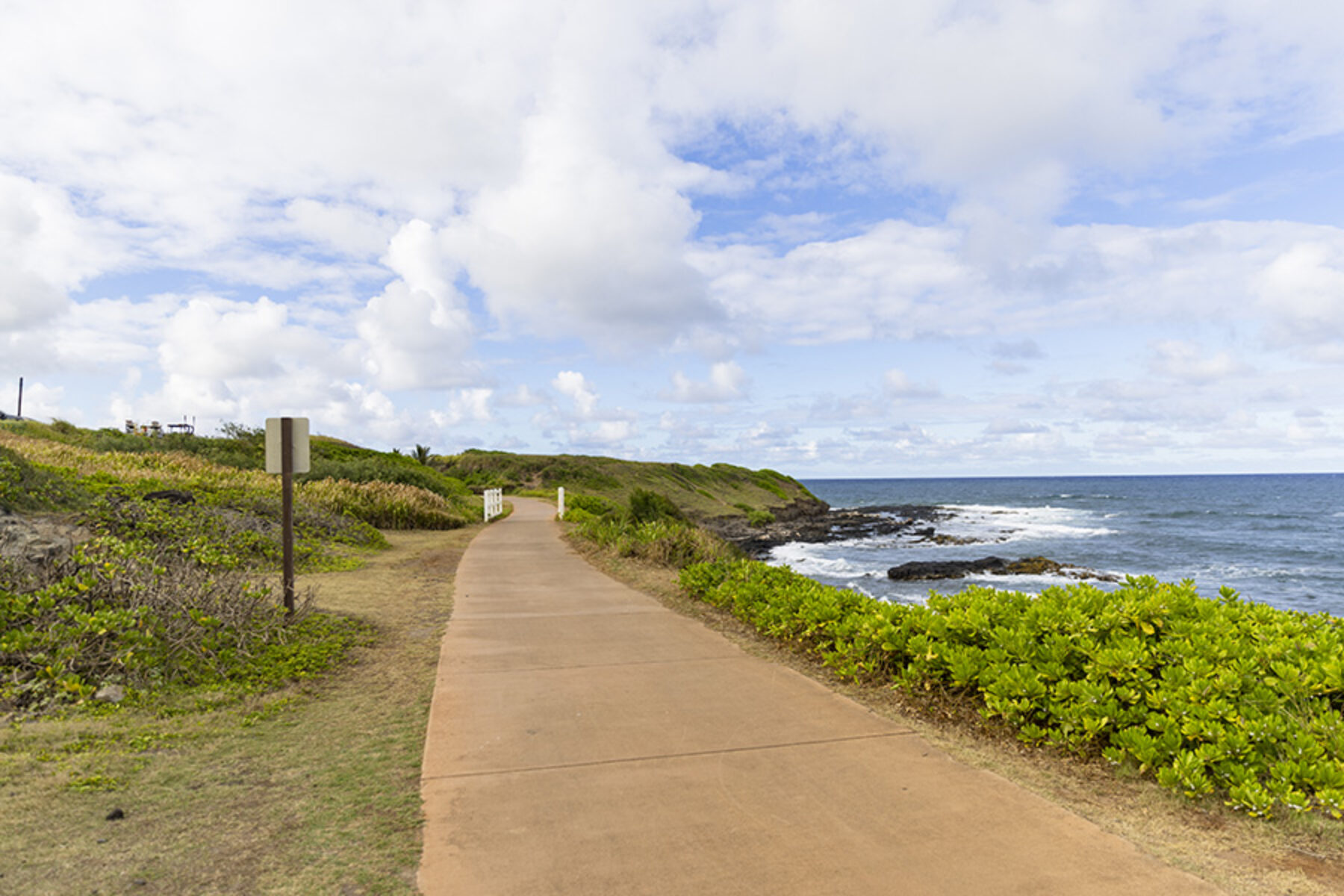
This summer, Ke Ala Hele Makālae (kauaipath.org) on the Hawaiian island of Kaua‘i was named the 2024 Rails to Trails Conservancy Hall of Fame winner by securing nearly 45% of the public vote. This exemplary group of multiuse trails is celebrated for the social, economic and quality-of-life value they bring to their communities. Learn more about this exciting and impactful trail and how it earned this special recognition.
Scenic Assets
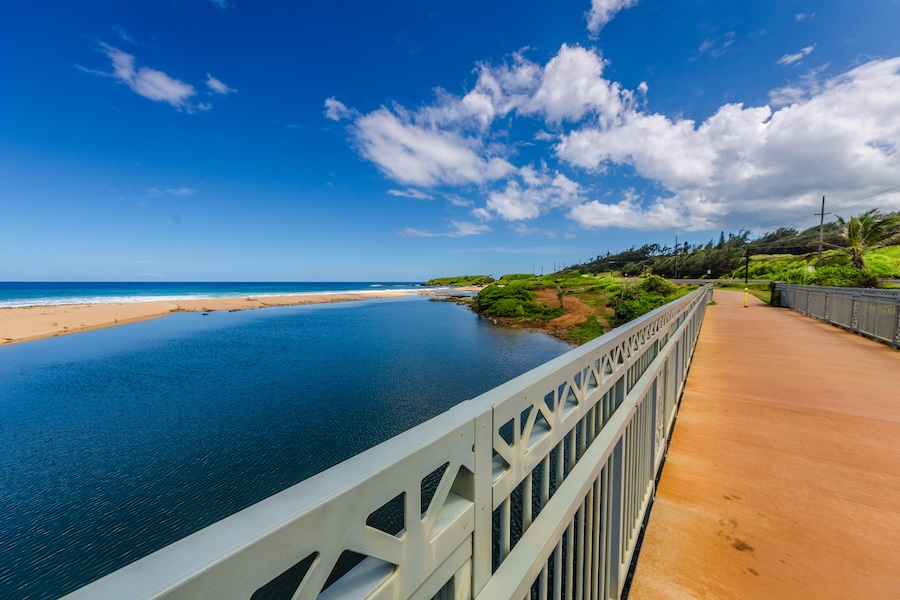
Ke Ala Hele Makālae, which means “The Path that Goes by the Coast,” stretches 8 miles along the eastern shore of Hawaii’s “Garden Isle.” Its paved route boasts expansive views of sky and sea, and the chance to see monk seals lounging on the shoreline, seabirds darting above the waves and whales breaching in the distance.
Community Connectivity
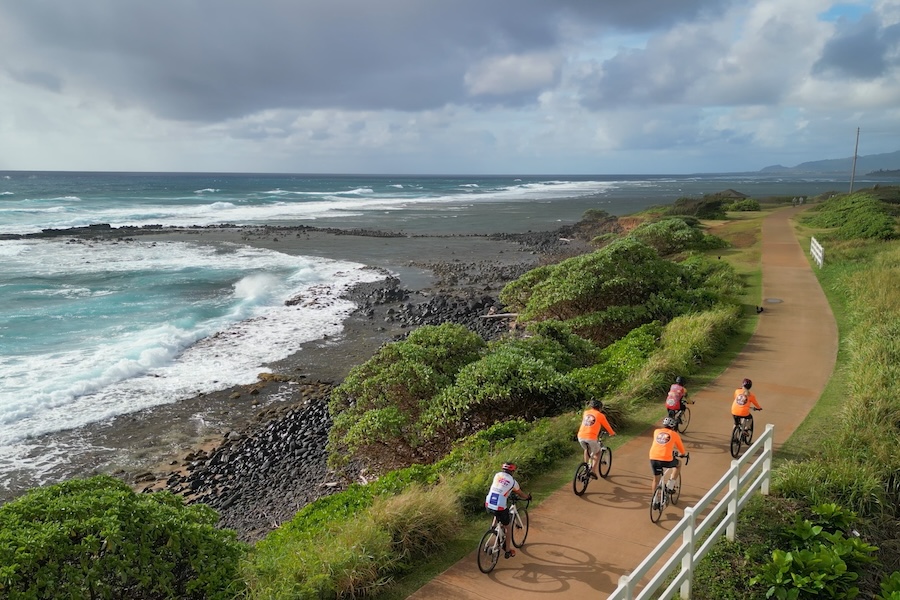
Loosely parallelling Route 56 (Kuhio Highway), the trail provides an alternative to one of the island’s busiest roadways and connects the coastal communities of Ahihi Point, Wailua Beach Park, Lydgate Beach Park and Kapa‘a, the most populous town on Kaua‘i. Future plans will expand the route to 17 miles, from Nāwiliwili and Lihue (home to the island’s seat of government and the airport) to Anahola.
Educational Opportunities
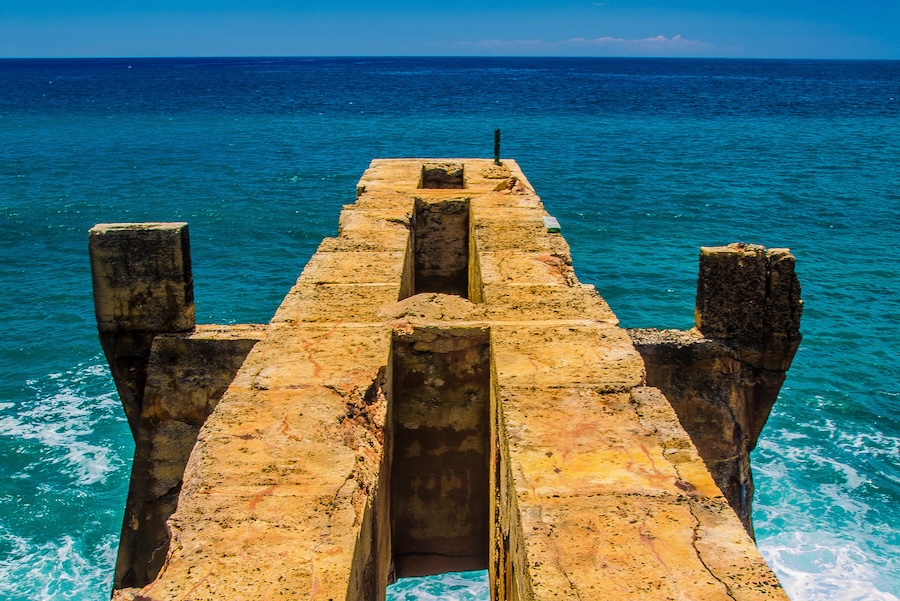
Via nearly two dozen interpretive signs dotting the pathway, people can learn about the archeological, cultural and historical sites found along the way, the Native names of streams and canals, the plants and animals that can be seen here, and other topics unique to the area.
Trailside Amenities
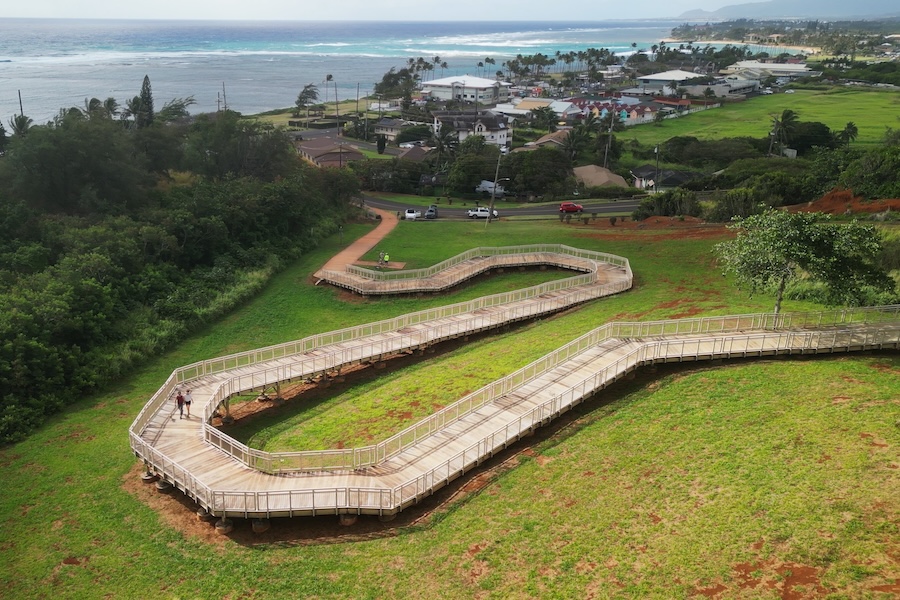
A highlight of the route is Lydgate Beach Park, which houses two lagoons protected by a stone seawall offering calm waters for ocean swimming and snorkeling, as well as picnic pavilions, tent campsites and a community-built playground. The trail also connects to the Kawaihau Elevated Boardwalk, providing the most densely populated residential area on the island with access to the coast.
Collaborative Role Model
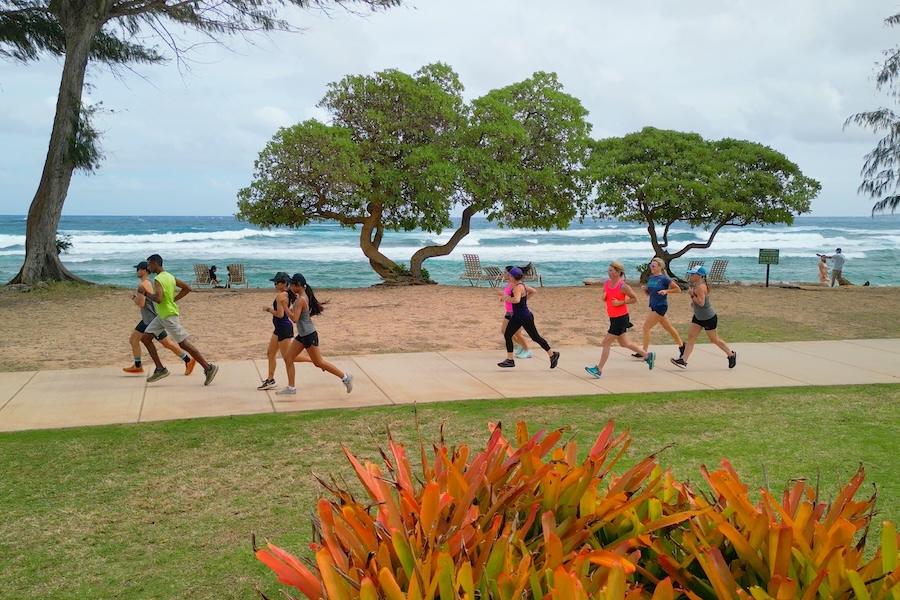
Ke Ala Hele Makālae is frequently hailed as an example of a successful partnership between government, private and community groups. Back in the 1990s, farms from a once-thriving agricultural economy were going defunct and selling off their lands, raising concern in local advocates about the potential loss of access to the coastline. The trail project—partially built on a rail line used to haul sugarcane crops—preserved the coastal corridor for everyone to experience.
This article was originally published in the Fall 2024 issue of Rails to Trails magazine and has been reposted here in an edited format. Subscribe to read more articles about remarkable trails while also supporting our work.


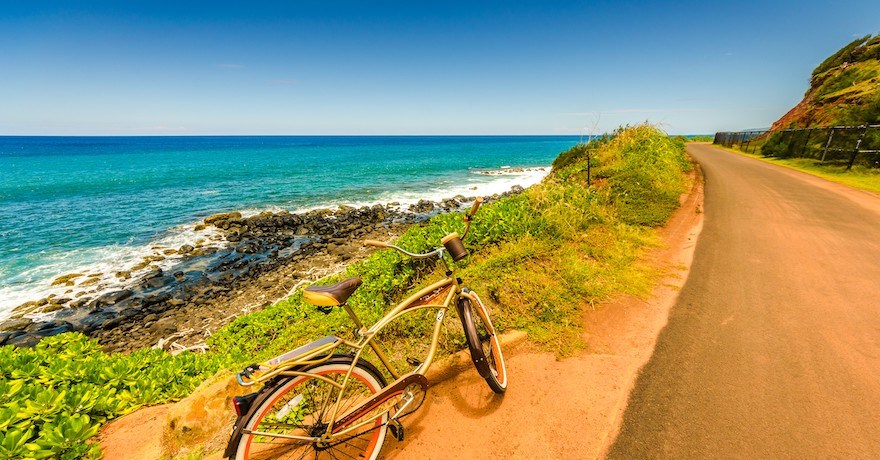
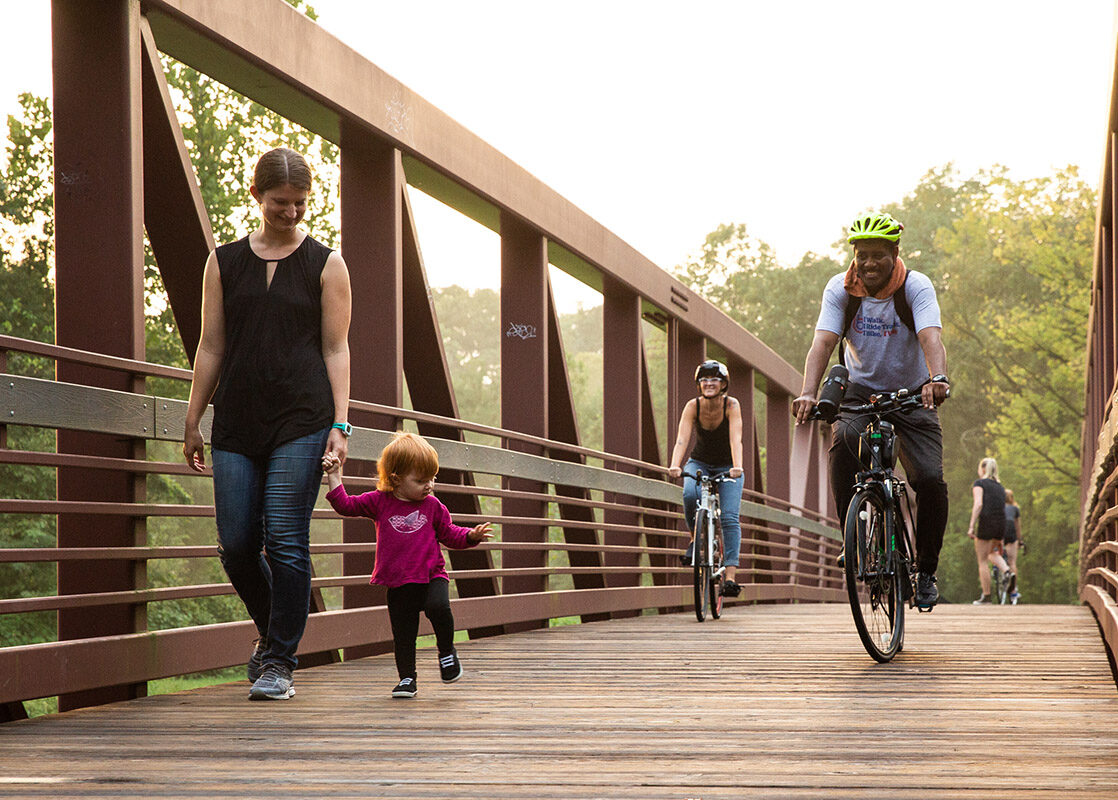
Donate
Everyone deserves access to safe ways to walk, bike, and be active outdoors.
